It’s easy enough to make sure your good time isn’t making someone else’s life tougher if you’re aware of the culture you’re visiting. Don’t limit yourself to the suggestions in this chapter, as ethical considerations should inform all your travel. Volunteering is another way you can make a difference to the places you visit, even if you just help out for a few weeks.

Being a Good Traveller – chapter excerpted from The Big Trip: Your Ultimate Guide to Gap Years and Overseas Adventures. © Lonely Planet 2015, published with permission
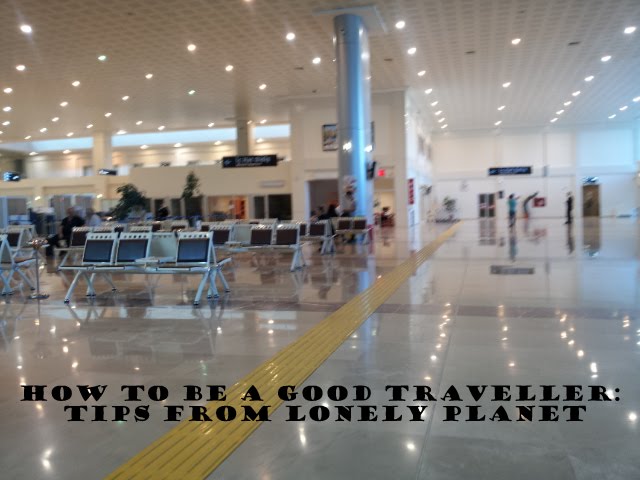
RESPECTING LOCAL CULTURES
Confusing, frustrating, surprising and occasionally hilarious, cultural differences occur no matter where you go. Visiting another country means leaving your judgements at the airport and appreciating the difference. It’s easy to feel threatened or scared in a new environment, but a bit of research before you go can prepare you for everyday encounters – see the destination chapters in The Big Trip for a few ideas about the cultures you’ll be visiting. Another good way of helping out a country could be to volunteer there.
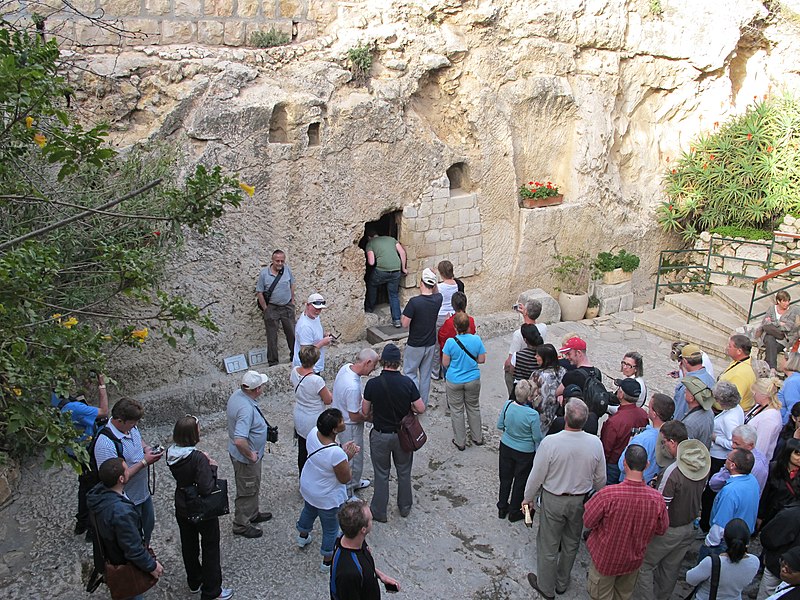
Tourists queueing to look inside the Garden Tomb, an alternative to the Church of the Holy Sepulchre as the site of Jesus' burial and resurrection. Wikimedia Commons: Dan Lundburg
AVOIDING OFFENCE
Every traveller feels stupid and bumbling at some point in their trip. You’ll stick out like a sore thumb and everyday things you do will crack locals up. It goes both ways and your best defence is an apology (needless to say, ‘sorry’ is a must-learn in every language) and a sense of humour. If you can laugh off hocking up phlegm in China’s streets or using the wrong hand to eat in India, locals will warm to you as ‘that crazy foreigner’.
Dress
Wearing the right clothes is more than fashion, as locals will use your clothes to gauge who you are. Particularly in Muslim and Indian Subcontinent countries, flashing your flesh is a no-no, especially if you’re a woman. After years of sexed-up Hollywood movies, Western women have a bad reputation and showing too much skin only confirms stereotypes. In Latin America, even the poorest people look neat and clean, making your catwalk-fashionable slashed-up jeans best left at home.

Tourists queueing outside of St Peter Basilica. A placard explains the dress code for the visitors through illustrations. The unacceptable examples leave the shoulders and thighs bare; the acceptable examples cover them. Wikimedia Commons: Vmenkov
Hospitality
Make sure you know what is considered polite and what is rude if you are eating and drinking with local people. In some Asian countries sticking your chopsticks in your rice is considered rude, and in Australian pubs putting your glass upside down on the bar was once a challenge for the whole bar to fight. If in doubt, look around to see what locals are doing.
Religion
Being respectful in a place of worship such as a church, mosque or temple is fairly obvious no matter how many photo opportunities there might be. A good start is dressing respectfully – long trousers for men and long skirts or trousers for women. You may need to remove your hat at some temples, while mosques require you to cover your head. At both temples and mosques, remove your shoes. At Hindu temples, remove leather objects such as belts before entering. Don’t point at Buddha images, especially with your feet. If you sit in front of a Buddha image, sit with your feet pointing away.
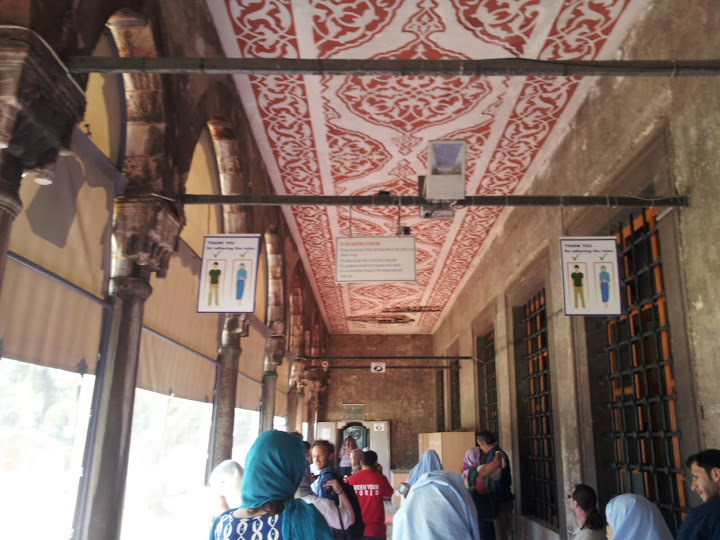
At Hagia Sofia, Istanbul
Showing Emotion
Losing it is really uncool – getting angry in Southeast Asia or Japan just makes you look silly and rarely achieves anything. In many parts of the world it is just not on for couples to show any emotion or physical contact towards each other in public, so leave the display of affections at home.
Women
Like it or not, in many countries women travellers are expected to behave in a certain fashion. For example, women are usually not allowed in the main prayer hall of a mosque. In many countries it is also inappropriate for women to drink alone in a bar or restaurant.
Taking Photos
A good shot doesn’t need to humiliate someone. Treating locals with respect when taking pictures means asking permission before you start popping a flash at them. Some people may ask you to send them a copy or you can show them the screen to see if they like the image. Some locals even charge money to have their photo taken, which you should probably also honour as they’re your ‘models’. You should also take care around religious structures unless you know it’s okay to photograph.
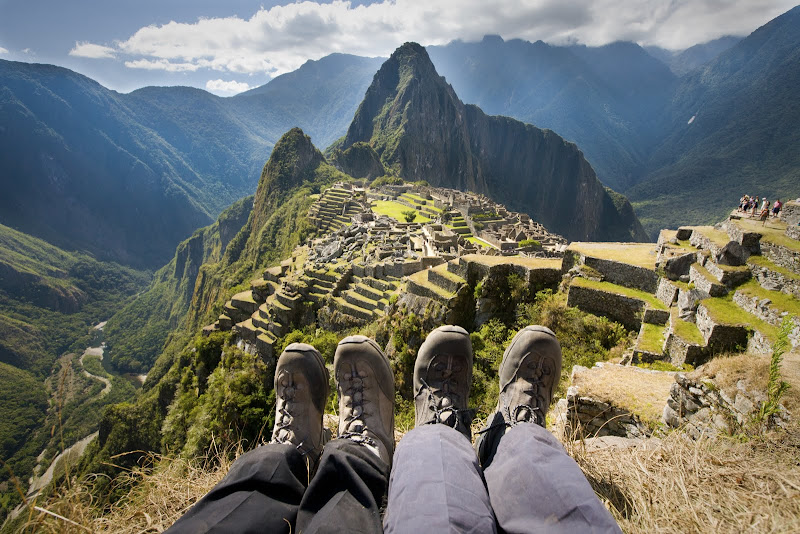
Machu Picchu, South America. Tom Robinson / Lonely Planet ©
GREEN TOURISM
There’s no doubt travel puts a strain on the environment, but there’s a lot you can do to look after the planet. Start with offsetting the carbon of your flight and any other transport. Lonely Planet uses a sustainable icon in many guidebooks to highlight businesses that are minimising their environmental impact.
Here are two handy resources for green travellers:
• Climate Care (www.climatecare.org) A ‘carbon trader’ with a good carbon emissions calculator; also plants trees to counter the effects.
• Responsible Travel (www.responsibletravel.com) Site selling holidays from companies that fulfil strict responsible-travel criteria.
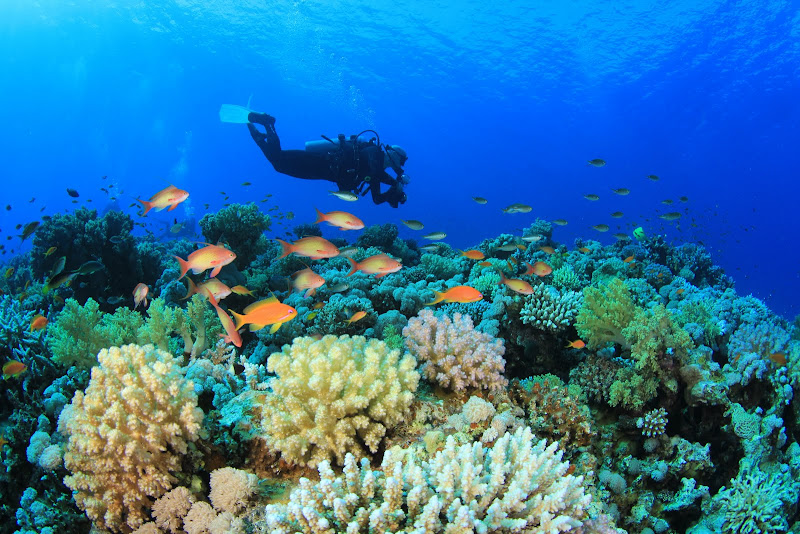
Great Barrier Reef, Australia. Rich Carey / Lonely Planet ©
EASY BEING GREEN
Here are a couple of everyday things you can do to look after your destination’s environment:
• Refill your water bottle from water dispensers or by purifying water (see p. 47).
• BYO shopping bags so you can refuse plastic bags from shopkeepers.
• Show locals that you’re getting rid of litter responsibly.
• Trekkers should take all disposable waste away with them. Batteries are particularly bad.
• Animal-based souvenirs, such as tortoiseshell trinkets, coral jewellery and seashells should be left well alone.
• Take public transport, cycle or walk to reduce pollution.
LONELY PLANETISATION
In Alex Garland’s The Beach, two jaded travellers meet in Thailand and talk about how Lonely Planet has ruined the country. They reckon guidebooks have plundered every last ‘hidden gem’ and put a spotlight on some places that would grow better if left in the shade. They finish their chat saying they’d like to beat up the Lonely Planet author who’s done all this damage. Not that we’d put our hands in the air for a beating, but we can see where they’re coming from.
Following a guidebook will create a tourist trail, and places included in a book attract more visitors overnight. Tourism brings large injections of cash, but it can also bring large amounts of corruption and a dumbing down of an existing culture. Bringing in tourists does mean that there will be more attention on an area and when you go home you’ll be able to talk first-hand about what a country is actually like. We try to review places as often as we can to make sure that they’re still ‘good’ (at what they do as well as doing the right thing), but places do escape us. If you think a guidebook is recommending a place or a business that’s ‘gone bad’, let us know at www.lonelyplanet.com/contact. We take all of this feedback seriously and next time an author goes out on the road they’ll be given a copy of your email. We think this might even stop our authors from being beaten up.
As a traveller, there are plenty of things you can do to help stop the march of globalisation trampling over a place you loved:
• Support grass-roots charity groups where the results of your donation are clear.
• Give to beggars when you know it will go to an individual and not a ‘beggar pimp’ – if in doubt, give food, toys or other readily useable items.
• Explore off the beaten track, but be respectful of the people and environment you encounter.
• Be informed about local politics and find ways to benefit local communities, including drinking a local beer or using public transport.
• Haggle for what’s fair, but remember that you’ll always pay ‘tourist prices’ because of the obvious income inequalities.
Being a Good Traveller – chapter excerpted from The Big Trip: Your Ultimate Guide to Gap Years and Overseas Adventures. © Lonely Planet 2015, published with permission
All photos courtesy and copyright Jessie Voigts, except where noted
